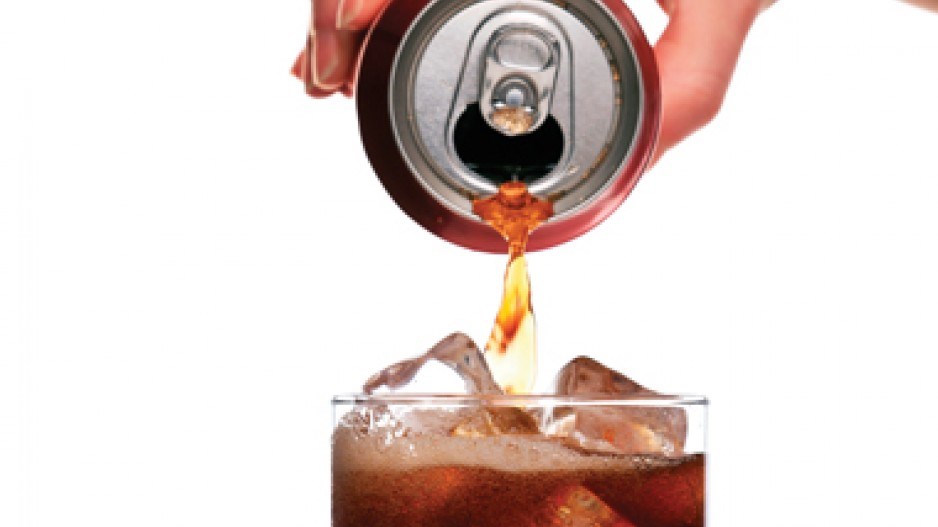Health proponents are urging the B.C. government to implement a "substantial" tax of up to 20% on packaged and fountain drinks that contain high amounts of sugar to curb obesity, particularly among youth.
"Taxes are a component of what is needed for a successful strategy to reduce consumption of sweet drinks," provincial health officer Perry Kendall told Business in Vancouver last week. "It would have to be a substantial tax to alter people's habits and that would be very controversial, so I don't know that there's much political appetite."
British Columbia Healthy Living Alliance (BCHLA) director Mary Collins told BIV that the tax could be revenue-neutral to government, and therefore be more palatable, if taxes were simultaneously reduced on healthier foods or on other items where the government wants to encourage spending.
"Statistics show that 27% of B.C. children are obese or overweight," she said.
"The number of overweight adolescents has tripled between 1978 and 2004 so this is a big issue, particularly for children."
The World Health Organization defines obesity through a calculation that divides a person's weight in kilograms by the square of his height in metres.
If the result is 25 or more, the person is overweight. If the result is 30 or more, the person is obese.
No tax would be added to diet or non-sugary beverages under her proposal.
Critics of a new sugary-drink tax include Fraser Institute economists who say the government should not interfere with the free market by encouraging or discouraging consumer behaviour.
"The argument that this is a solution to obesity is incredibly weak," Fraser Institute director of health policy Nadeem Esmail told BIV.
"It comes across as an inappropriate vilification of an industry that some commentators or nutritionists simply don't like."
He pointed to Statistics Canada data that shows soft drink consumption in Canada fell 35% to 64.33 litres per person in 2012 from 98.98 litres per person in 1999.
If obesity is on the rise as soft drink consumption is on the decline, then soft drink consumption could not be the prime cause of obesity, Esmail argued.
Canadian Beverage Association president Jim Goetz agreed.
"Education, not taxation, is the key to combating obesity," he said. "A tax won't make people healthier."
Collins said she supports the government investing to educate youth on healthy eating choices, and she supports its strategy to have guidelines to curb the sale of unhealthy foods and beverages in B.C. schools.
She said education alone is insufficient.
Few B.C. companies produce sugar-sweetened drinks that would be affected by the sugary drink tax.
The province's largest drink makers, such as SunRype, Leading Brands Inc. (Nasdaq:LBIX) and Happy Planet majority-owner Earth's Own Food Co., tend not to use added sugar in their beverages.
Convenience store giant 7-Eleven Inc.'s Canadian subsidiary, which is based in Surrey, employs 2,000 people in the province.
It opposes new taxes.
"We believe that taking an educational approach to informing people of the options available to them versus going down the route of imposing a significant tax will have more of an impact in the long term," said 7-Eleven Canada communications manager Laurie Smith.
B.C. Finance Minister Mike de Jong's spokesman, Jamie Edwardson, told BIV that de Jong welcomes ideas for how to encourage healthy eating but is not considering a tax on sugary drinks at this time.




